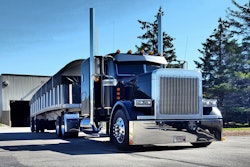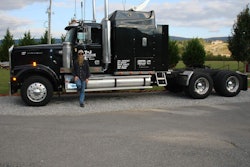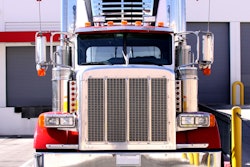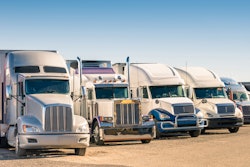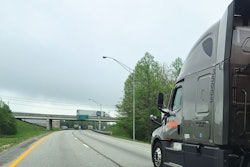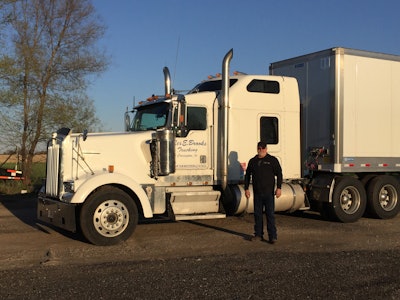 Indiana-based Rex Brooks and his Kenworth W900. He’s been an owner-operator for more than 40 years. He’s chosen to stay home the last few weeks, due to cheap rates, virus risk and poor treatment on the road.
Indiana-based Rex Brooks and his Kenworth W900. He’s been an owner-operator for more than 40 years. He’s chosen to stay home the last few weeks, due to cheap rates, virus risk and poor treatment on the road.On Monday, the price for a barrel of crude oil crashed so hard that it tipped past zero and into negative territory for the first time. Per the West Texas Intermediary benchmark, on Monday afternoon a barrel of crude oil in the U.S. cost -37.63.
How can something really “cost” a negative amount? Many were quick to point out the literal concept: You’d be paid to take oil off sellers’ hands.
With reserves full, the market is awash with oil due to a price war between Saudi Arabia and Russia. Add to that the fall in demand for fuel worldwide due to the pandemic, and market conditions drove oil prices to the floor, and then through it.
A similar concept is playing out in trucking, with a market thick with truckers looking for work and demand for those services at dramatically depressed levels. Though rates don’t have a negative sign in front of them, in the worst cases they might as well. Many owner-operators report rates of $1 a mile, or less, advertised on load boards and by brokers directly. At prices like that, depending on your fixed costs, you just might in fact be paying to take loads off shippers’ and brokers’ hands.
The solution? Increasingly, it’s just to stay home until rates come back.

“I can’t work. I can’t afford to with the rates right now,” said Toma Tomov, an owner-operator out of Lincoln, Missouri. “If I go to work at the rates posted for loads right now, I’ll be paying out of my own pocket.” He doesn’t have a truck payment, “which is why I’m able to afford to stay home like this.”
Independent Timothy Barrett said roughly the same thing two weeks ago. “I am basically shut down,” he said. “I can go broke two ways: Hauling for nothing or not hauling. I’m not going to [run loads] and exchange money for fuel and drive the truck for free.” Like Tomov, Barrett’s 1997 Western Star is paid for. “If something starts popping,” he said, referring to loads coming back, “I’ll be there.”
The spot market “has evaporated,” says Jeff Tucker, head of brokerage Tucker Company Worldwide. “Prices in many cases are less than what it takes to operate a trucking company.”
Likewise, an Overdrive survey conducted late last week shows dozens of owner-operators reporting rates cheaper than their costs, forcing them to either lose money or stay home.
Independent Rex Brooks has opted to sit and wait for life on the road to return to normal, as well as for business to come back. He parked over three weeks ago, concerned about potentially catching the virus on the road and bringing it home to family. “I’m not willing to risk their lives over it,” Brooks said, noting that he and his wife are over 60 and that his son’s an expecting father.
What’s more, treatment at shippers and receivers was rough, said Brooks, and it was too hard to find food and parking. “It’s just not a good situation right now,” he said. One of his main accounts still owes him upward of $15,000 for loads hauled in February and March, but the company has filed for bankruptcy, likely delaying any payments to Brooks for his services. “We’ve hauled the freight. We bought the fuel to haul the freight. We paid wages to haul the freight. But it’s unlikely we’re ever going to get it.”
He’s paid up on insurance until next year, and his truck is paid for. He does have a trailer payment and living expenses, he said, but other than that, he and his wife are going to make ends meet until he can work again.
Likewise, he’s been keeping tabs on loads and rates on a prominent load board, awaiting opportunities. “They’re just trying to beat us to death on rates.”





